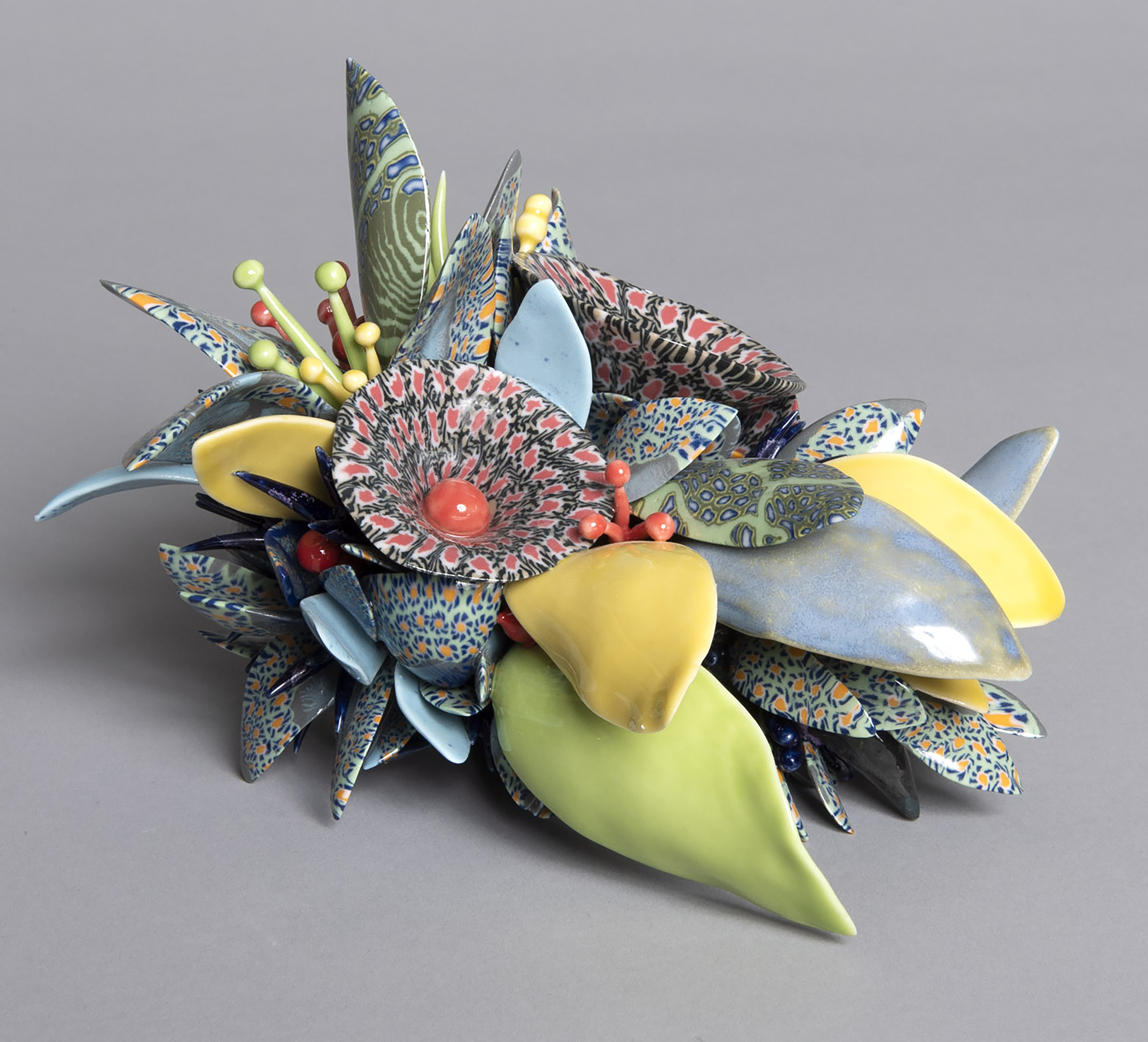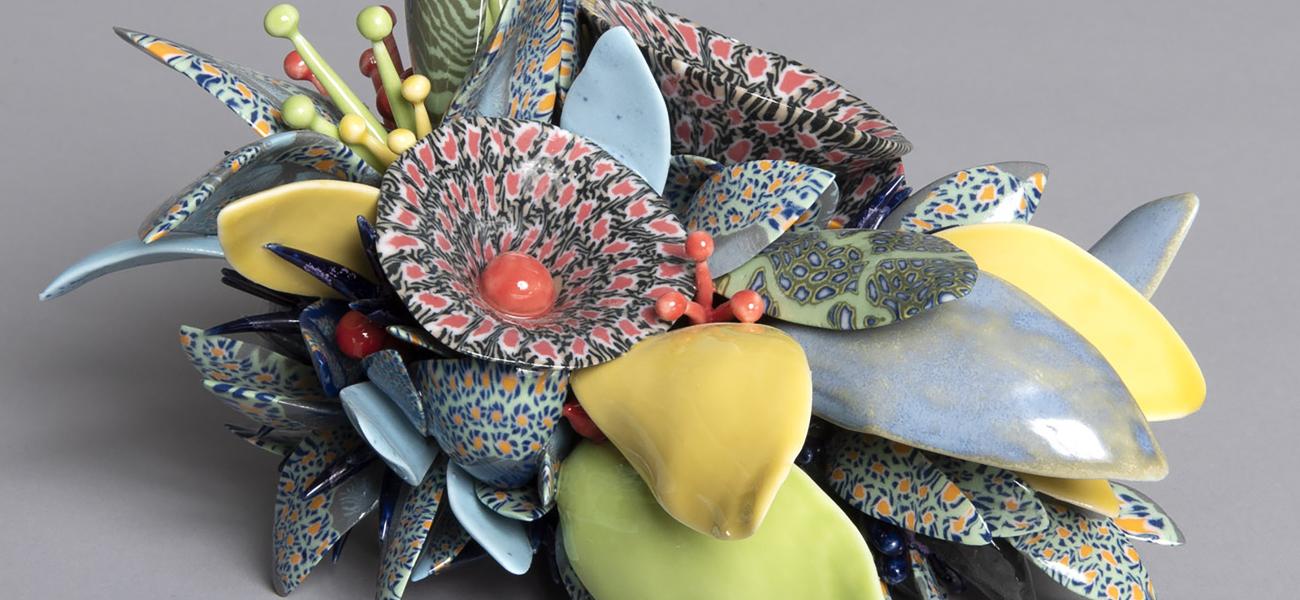Lucy Lacoste generously shared the following catalog essay with Studio Potter, drawing our attention to the next generation of Japanese women in ceramics. The exhibition was inspired by two important past exhibitions; Soaring Voices (2009–2012) which traveled to ten locations in the United States, and Touch Fire (2009) at Smith College, Northampton, MA.
At the beginning
Within the traditional world of ceramics in Japan lies a history of the various prohibitions women have encountered. This world was said to be the society of men. However, the truth of the essential roles women played when traditional Japanese ceramics centered in households making pottery is becoming widely recognized.
Beginning in the 1950s, pioneer women artists began to assert their places within the flow of contemporary ceramics. Araki Takako (1921–2004), Mishima Kimiyo (1932–), Tsuboi Asuka (1932–), and others opened the way by pursuing their thirst to create and their undaunted determination to carry on.
Freely and flexibly
Those women of the pioneer generation and the women makers of a younger generation share a gentle spirit, free expression, and superb technique. Yet one significant change is apparent. Compared to the women of the pioneer generation, with their "undaunted determination" essential to the task of escaping limitations and opening a place for their expression within the intensely male society of ceramics, the women artists of the present generation proceed steadily with greater flexibility, lack of tension, and relaxed manner.
Nature and women artists
This exhibition introduces five women ceramic artists who continue on the path opened by the pioneers and are recognized at the forefront of their generation. They share a focus on drawing inspiration from the natural world and incorporating it into their work. They also draw upon exceptional technical skill and refined spirit to realize their generous and distinctive forms and surfaces.
 Aya Murata
Aya Murata
Turning to nature for her inspiration, Aya Murata (1979–) makes sculptural evocations of animals and plants. She begins by considering the overall form, then prepares her marbled clay mixture using an appropriate color scheme. She assembles numerous delicately-patterned cross-section slices of clay to shape the components.

